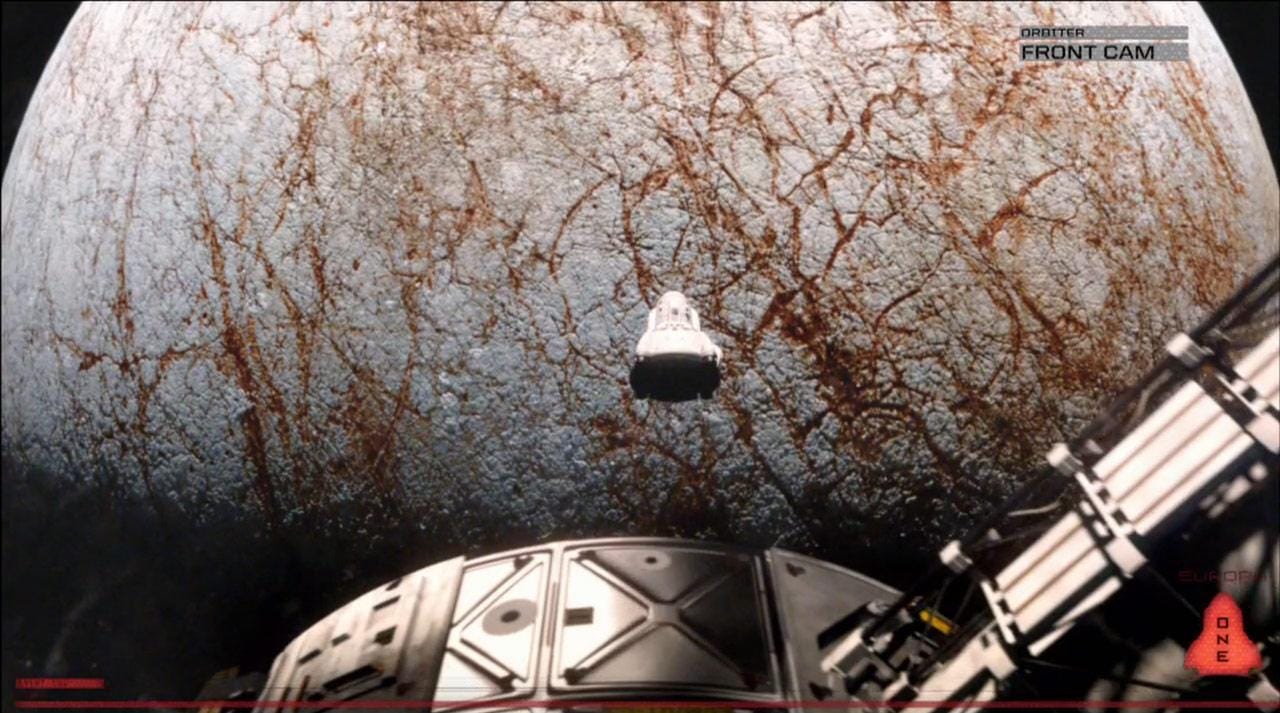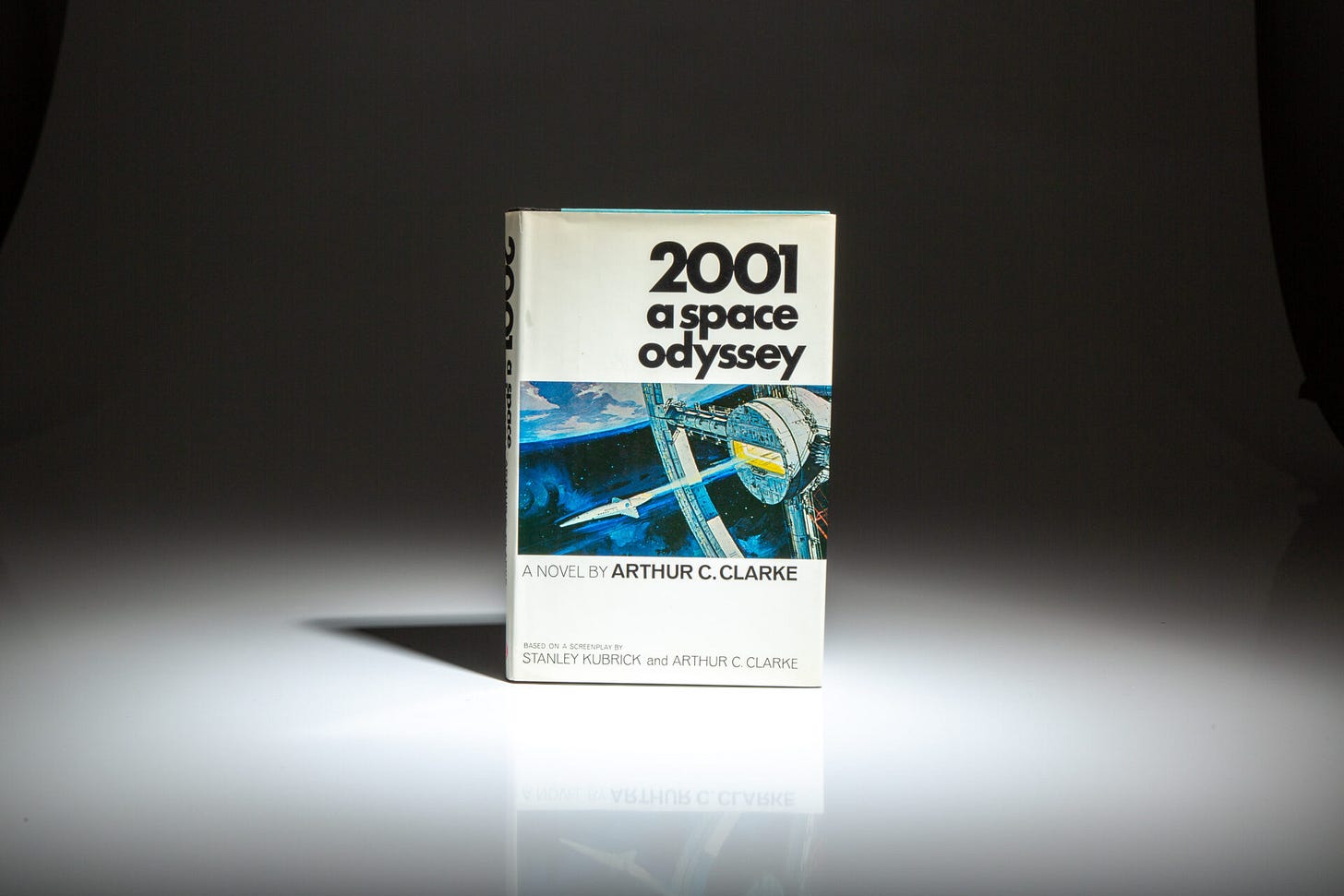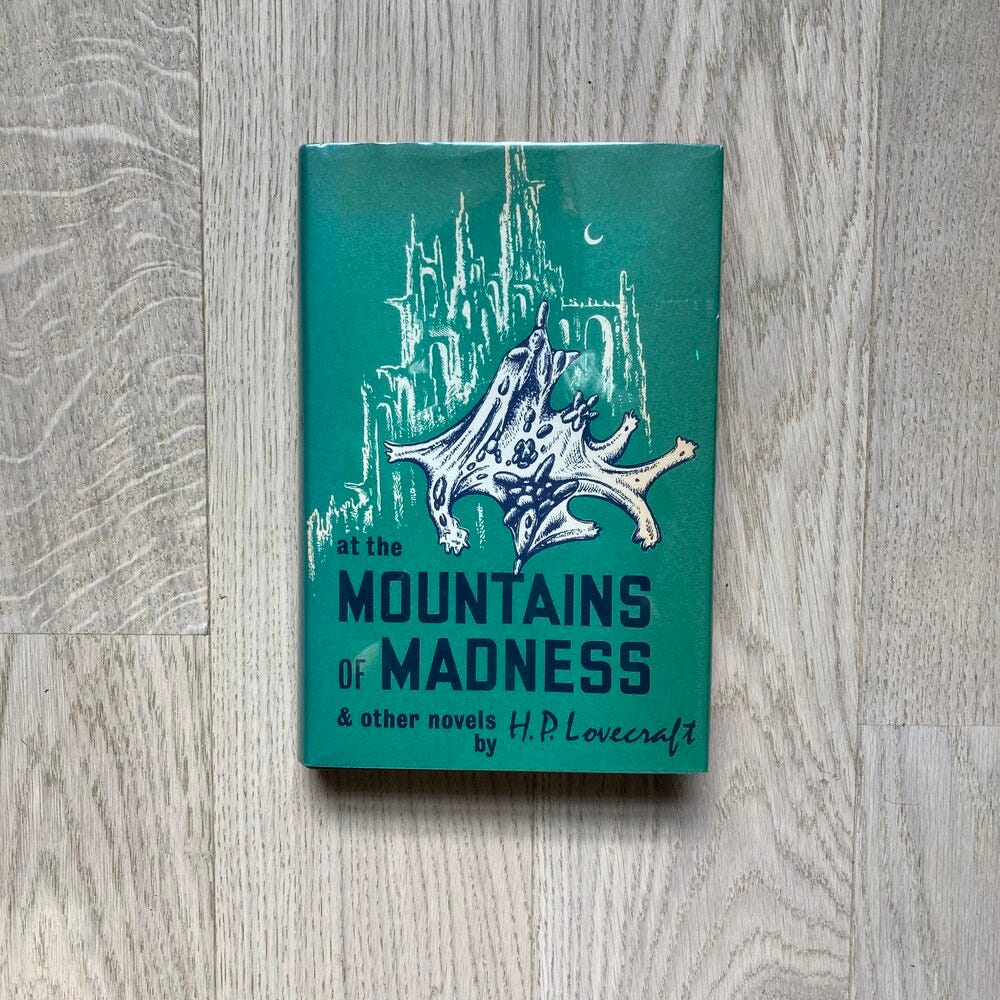Since this substack is new and we're still working on new things to show you, we’re going to continue our soft launch here by talking about things we’ve already made.
Where have we been, then where are we going.
This one’s going to be all about screenwriting.
On Europa
Over a decade ago, I wrote a movie called Europa Report.
In the immediate aftermath of the launch of the Europa Clipper on October 14th, I thought it appropriate to look back on that movie for a beat.
Europa Report concerns a manned mission to Europa. It stars Sharlto Copley, Anamaria Marinca, Michael Nyqvist, and Daniel Wu.
A fictionalized version of a mission exactly like the Clipper spurs the manned mission in the film.
Europa Report remains a project very close to my heart. It was my third work as a screenwriter (we'll talk about the other two soon); and it was the first time that I felt like maybe I might know what I was doing on the page.
Beginnings
The project started in a meeting I had with a producer.
The meeting wasn’t about anything in particular. Just a meet and greet sort of thing. “A general” in the parlance of Hollywood. The conversation veered from topic to topic, horror films, science-fiction films, Hitchcock, etc. etc.
And then eventually, he said to me something like “I’ve been thinking I could make a found footage sci-fi film that’s three sets. Mission Control, onboard a ship, and a little bit of the planet. Do you think you could write something like that?”
The answer was, of course, obvious.
Yes. Yes I think I could write something like that.
At that point, it wasn’t a story at all. It was a genre and a production plan looking for a story.
Quicikly after ideas were considered and dismissed.
Would it be a far future science-fiction story? No. Too expensive and we’re trying for something grounded (cheaper) here.
Where would these astronauts be going? Mars seemed too obvious. We considered Enceledaus for a beat, we considered a large asteroid in the asteroid belt, but it quickly became clear that Europa was the strongest answer precisely because of the likelihood of water and life existing there.
Why would they be going there? This was a contested part of the script for a long time.
Were they looking for resources? Mineral rich veins under the surface? Something of monetary value? An economic motivation is clear and understandable BUT it makes no actual sense. You simply wouldn’t go to Europa looking for such a thing. Even if you found it, how the hell would you get it back to Earth?
Was this a first attempt at finding a future home for mankind? I tried to make this answer work for a while. But ultimately it was theoretical a motivation. It felt ungrounded. And, once again, why would we be going to Europa for that when there are closer, easier targets.
And so, eventually, we settled on the inevitable answer.
They had to be a searching for alien life.
And if they found it, the ramifications wouldn’t be economic, or societal, they’d be far more profound than any of that.
Inspirations
The inspirations for the film were many and perhaps obvious to any fan of the genre.
Arthur C. Clarke weighed very heavily on my mind during the writing process. Both in terms of a devotion to “hard science-fiction” AND because 2010 is also about a mission to Europa.
It’s because of Clarke’s legacy that I desperately wanted to get the science right. At the time, and even now, there so few works of on screen science-fiction that are concerned with scientific issues.
Sci-fi on screen is largely concerned with space opera and adventure and outright horror. Which is fine, I love all that… but I was aftera different flavor.
We mostly succeeded on the hard sci-fi front.Tthough there are embarrasing inaccuracies that snuck in there when I wasn't paying attention. They still annoy the shit out of me to this day.
Since I’d been a fan of Clarke and Kubrick both my whole life. So one question immediately was: "what can this film say that hasn’t already been said by better minds?"
My answer to that was to pull back from the evolutionary scope of 2001 and indeed, 2010.
Instead I tried to situate the film more within the real world. I love the monolith and the starchild as much as the next person, but the question I wanted to answer was NOT "What would happen if you went out that far, searching, and there was alien technology waiting to greet you?"
Instead, I wondered what smaller discoveries might mean something? AND might those smaller discoveries actually mean something enormous?
Now of course, spoiler, there IS an alien at the end of the film. But it's meant to feel more animal than anything else. It isn’t an encounter with a greater intelligence; it’s an encounter with a lesser intelligence.
But even that is meant to imply something huge: there is so much more to find out here.
The universe has secrets, large and small, and they might be deadly but that's not a reason to look for them.
That brings me to another enormous inspiration for the film.
Lovecraft was and continues to be an even bigger influence on me than Clarke.
Despite all of his baggage, there is an undeniable pull in his writing, a certain feeling, a certain darkness, that, for the right person, is overwhelming.
The writing is full of people who driven to uncover hidden truths about themselves and the cosmos. That is 100% in the DNA of Europa Report.
But this film was not meant as any kind of homage to Lovecraft’s writing; instead it was meant as a kind of rebuke.
The classical, cliche idea of a Lovecraft character is someone who encounters the vast, unknowable scope of the universe and goes mad.
Now that's one way things might go. But I think there's another way too.
Our oldest fear is fear of the unknown, but does knowledge of the uknown necessarily break a person’s mind?
I think the answer is no. Not inevitably.
So I filled this film with characters who stare into the unknown and find there not horror but instead inspiration. They have a drive to know, even at the cost of their own lives.
Theme
It’s the rebuke of Lovecraft that ultimately gave the film its theme.
When weighed against all the knowledge left to know, what does any life matter?
It is the conceit of the film that to die in pursuit of knowledge is the noblest of endeavors.
It’s that idea that keeps the film close to my heart.
The production on the movie was difficult. The post-production even more so. But I always had it in mind that if we could land that idea, then the film would have been worth it.
Devotion
We consulted with scientists and experts on all manners of space travel and planetary science during the making of the film
During one those conversations I asked one the JPL Europa experts: "Does it bother you that you've devoted your life to studying this place you'll never see with your own eyes, that you might never get the answers about it that you're looking for?"
His answer probably won't surprise you. "No."
It was like the question had never bothered him at all. And then we moved onto other more technical questions that had been.
I think about the devotion in that answer a lot. And I really hope he’s still there at JPL, working on monitoring the Clipper’s mission.
The film is currently streaming on Netflix and rentable from all the usual sources.
Sequel
As a final note, there was briefly talk of doing another one.
It was going to be very grand and bold in story structure. In the sequel I wanted to take those themes of exploration and discovery; of humanity’s desire to push to the limits beyond the limits as far as I could.
Clarke and Lovecraft were the inspirations for the first film. M. John Harrison was going to be the inspiration for the sequelly.
But sadly it never got off the ground.
Maybe in a future post, I’ll talk more about it.








